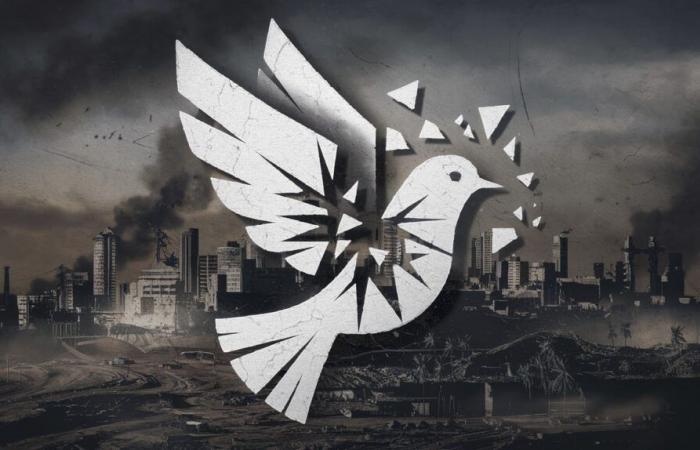Qatar’s withdrawal from its role as mediator in the Israeli-Palestinian conflict undermines hopes for a truce in Gaza. What will be the consequences of this decision on the future of the negotiations and Hamas? An in-depth analysis of the situation…
Hopes for a truce agreement in the Gaza Strip and the release of hostages held by Hamas were dampened by Qatar’s shock announcement to suspend its mediation between Israel and the Palestinian Islamist movement. This unexpected decision by the wealthy emirate, which is home to Hamas’s political office and a major American base, raises many questions about the future of the Middle East peace process.
Qatar, a key mediator in the impasse of the negotiations
Since the unprecedented Hamas attack in Israel on October 7, 2023, Qatar has played a central role in indirect negotiations aimed at securing a lasting ceasefire and the release of hostages held in Gaza. Alongside the United States and Egypt, the emirate has positioned itself as a neutral and influential actor, strong on its privileged relations with the Palestinian movement.
However, despite a brief lull at the end of 2023, the talks are now at an impasse. Hamas’s rejection of a short-term truce proposal and Israel’s stated determination to continue the war until the Islamist group is wiped out have shattered diplomatic efforts. In this context, the suspension of Qatari mediation appears to be a major blow to the peace process.
An intermediary that is difficult to replace
While Egypt shares a border with Gaza and the United States is Israel’s main ally, Qatar has until now been seen as the only truly neutral mediator. His withdrawal leaves a void that will be difficult to fill, as Andreas Krieg, Middle East expert at King’s College London, explains:
The Gaza negotiations need an intermediary and I don’t see how it could be anyone other than Qatar.
The situation is all the more complex as the recent assassinations of senior Hamas leaders, Yahya Sinouar in October and Ismaël Haniyeh in July, have considerably weakened the movement. Finding new credible interlocutors and maintaining a negotiation process in this context proves extremely difficult.
A standoff between Hamas and Israel
For Anna Jacobs, of the International Crisis Group, the current blockage results above all from Hamas’s feeling of having already made major concessions, notably by accepting an American ceasefire plan during the summer of 2023. The movement believes that Israel is sabotaging the negotiations by constantly adding new conditions, such as maintaining a military presence in Gaza.
For its part, the Jewish state does not seem ready to compromise on its security demands and maintains a hard line against Hamas. In this standoff, the suspension of Qatari mediation could encourage the Palestinian group to harden its positions, making a peaceful outcome to the conflict even more hypothetical.
The uncertain future of Hamas and its leadership
Beyond its impact on the negotiations, Qatar’s withdrawal raises the question of the future of Hamas and its political office in Doha. If the Qatari authorities have denied wanting to expel the movement, a closure of its representation cannot be ruled out in the long term. Such a scenario would place Hamas in a delicate situation, potentially pushing it to turn towards Iran, according to Andreas Krieg.
Turkey, another traditional supporter, appears reluctant to welcome the group for fear of attracting the wrath of the United States. As for the leaders of Hamas, Anna Jacobs believes that they could stay out of Qatar until a hypothetical resumption of serious negotiations. A period of uncertainty is therefore beginning for the Islamist movement, whose room for diplomatic maneuver seems to be shrinking.
A bleak future for the peace process
The suspension of Qatar’s mediation undoubtedly marks a turning point in the Israeli-Palestinian conflict. In the absence of an actor capable of resuming the thread of dialogue between Hamas and Israel, the prospects for a peaceful resolution are becoming more distant every day. The coming weeks will be decisive in assessing the consequences of this withdrawal and a possible resumption of talks, but pessimism seems to be in order for the time being.
Between a cornered Hamas and an inflexible Israel, the space for negotiation appears smaller than ever. Without a rapid resumption of the diplomatic initiative, the already precarious stability of the region could be permanently compromised. The challenge is immense for the international community, which must imperatively find new ways to bring the parties back to the negotiating table and avoid a deadly escalation.
The war in Gaza has already left more than 43,600 dead and plunged the Palestinian territory into an unprecedented humanitarian crisis. Each additional day of conflict further aggravates the toll and suffering of civilian populations. Faced with this dramatic situation, the suspension of Qatari mediation only further darkens the prospects for peace. An urgent political and diplomatic breakthrough is more necessary than ever to break the current impasse and offer a better future to Palestinians and Israelis.
The suspension of Qatar’s mediation undoubtedly marks a turning point in the Israeli-Palestinian conflict. In the absence of an actor capable of resuming the thread of dialogue between Hamas and Israel, the prospects for a peaceful resolution are becoming more distant every day. The next few weeks will be decisive in assessing the consequences of this withdrawal and a possible resumption of talks, but pessimism seems to be the order of the day.
Between a cornered Hamas and an inflexible Israel, the space for negotiation appears smaller than ever. Without a rapid resumption of the diplomatic initiative, the already precarious stability of the region could be permanently compromised. The challenge is immense for the international community, which must imperatively find new ways to bring the parties back to the negotiating table and avoid a deadly escalation.
The war in Gaza has already left more than 43,600 dead and plunged the Palestinian territory into an unprecedented humanitarian crisis. Each additional day of conflict further aggravates the toll and suffering of civilian populations. Faced with this dramatic situation, the suspension of Qatari mediation only further darkens the prospects for peace. An urgent political and diplomatic breakthrough is more necessary than ever to break the current impasse and offer a better future to Palestinians and Israelis.






